2018 NAEd/SPENCER POSTDOCTORAL FELLOWS
Anjali Adukia, University of Chicago

Anjali Adukia is an assistant professor at the University of Chicago Harris School of Public Policy. Her research is focused on understanding factors that influence educational decisions for children, families, and teachers in developing contexts. To examine these issues, Dr. Adukia applies empirical statistical methods using large-scale panel data collected from numerous sources, in addition to drawing from insights collected from interviews and participant observation. She completed her doctoral degree at the Harvard University Graduate School of Education and her bachelor of science degree in molecular and integrative physiology from the University of Illinois at Urbana-Champaign. Her dissertation received awards from the Association for Public Policy Analysis and Management (APPAM), the Association for Education Finance and Policy (AEFP), and the Comparative and International Education Society. She also has masters of education degrees in international education policy and higher education (administration, planning, and social policy). Prior to graduate school, Dr. Adukia worked in non-profit organizations and educational institutions in the United States and India. Her desire to have a deeper understanding of how to reduce inequality guided her toward a career in research as a means of having meaningful influence on practice and policy. She continues to work with non-governmental organizations internationally, such as UNICEF and Manav Sadhna in India.
From Retributive to Restorative: Alternative Approaches to Shaping Behavior
Schools traditionally employed punitive, exclusionary methods of discipline, which may temporarily remove undesirable behavior but could result in adverse consequences for students in the long-run. More recently, schools have adopted positive, inclusionary methods of behavior modification, which, in theory, consider present and future concerns by holding students accountable while also repairing harm and rehabilitating relationships. In addition to these reactive disciplinary approaches, some schools have incorporated preventative measures by developing students’ socioemotional skills. In this project, Dr. Adukia will examine the introduction of interventions related to the adoption of restorative justice practices and programs focused on socioemotional-skill development to understand whether these shifts resulted in changes in disciplinary infractions, learning, attendance, or attainment. Findings will help inform school officials about the relative costs and benefits of shifting from a punitive system to a more positive approach to behavior change. This study will also help understand whether reactive approaches to discipline are sufficient to change behavior, or whether both proactive and reactive approaches may be necessary.
Claire Arcenas, University of Montana
Claire Rydell Arcenas is an assistant professor of American history at the University of Montana. She holds a PhD from Stanford University (2016), where she was a Geballe Dissertation Prize Fellow at the Stanford Humanities Center. Principally a scholar of American intellectual history, she is interested in the intersection between the history of higher education and political thought. Her current book project traces the influence of John Locke (1632-1704) on American intellectual life over the last three hundred years. Her work on Locke in America shows how educational content (e.g. what texts are assigned in a college classroom and what questions a professor might ask about these texts) transcends the confines of educational spaces and institutions to shape the ways in which Americans conceptualize their cultural and political traditions. Her research has received support from a National Academy of Education/Spencer Postdoctoral Fellowship and the National Endowment for the Humanities.
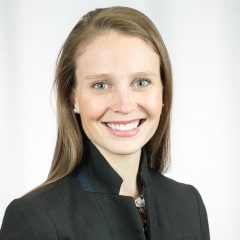
Lockean Legacies: John Locke in American Education, Thought, and Culture
John Locke, the seventeenth-century English philosopher, has played a central role in the history of American education, politics, thought, and culture. Although he never set foot in what would become the United States, Locke has captivated Americans in ways few other philosophers (American or not) ever have. Locke in America will be the first book to tell the extraordinary story of Locke’s transatlantic influence from the eighteenth century until today. It shows how and why each generation of Americans has remade Locke’s importance, drawing from him lessons and inspiration to meet the most pressing needs of their day. Locke in America is more than a reception history of a thinker and his works. The varied ways in which Americans have reconfigured Locke’s importance—from a model for educational excellence and virtuous living in the eighteenth century to an avatar of American exceptionalism in the twentieth—provide new insights into key transformations in American educational and intellectual life from the Age of Revolutions to the Cold War and beyond.
Maneka Brooks, Texas State University
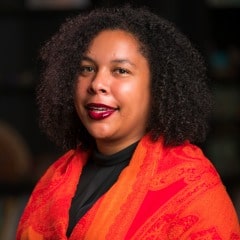
Maneka Deanna Brooks is an assistant professor of reading education at Texas State University. Dr. Brooks’ research agenda centers on everyday educational practices that impact the educational trajectories of bilingual adolescents. Her publications span the topics of bilingualism, adolescent literacy instruction, language proficiency and assessment, course placement, and teacher education. Dr. Brooks’ existing research with adolescents who are considered to be long-term English learners (LTELs) is emblematic of this focus. Her research underscores how their English literacy abilities demonstrate both a multifaceted knowledge of English and their histories of literacy instruction. Moreover, it illustrates how ideologies about language proficiency and race work in concert with students’ experiences of literacy instruction and English language proficiency assessments to mask these adolescents’ English language expertise. Dr. Brooks’ work has been published in the Journal of Literacy Research, Research in the Teaching of English, Language and Education, and other venues. Dr. Brooks earned her PhD in Educational Linguistics from Stanford University Graduate School of Education, a M.A. in Secondary Bilingual Education and B.A. in Psychology with a minor in Spanish from Loyola Marymount University.
Always an “English Learner”: Learning From the Veterans of EL Educational Systems
The assessment of English language proficiency plays a powerful role in the educational trajectory of bilingual students in the United States. Among other consequences, the results of these assessment practices can impact students’ access to courses and the pedagogical approaches that are deemed appropriate for their educational success. While there is a growing body of research that seeks to ensure effective and consistent English language assessment processes, the voices of high school students who are considered long-term English learners (LTELs) are frequently overlooked. This study adds a detailed and systematic study of their perspectives to this literature. Specifically, it investigates how high school students who are considered to be LTELs interpret their experiences with English language proficiency assessments and explain their on-going classification as ELs. As both current and veteran participants, they have intimate and extensive experiences with English language proficiency assessment practices that warrant further investigation. This multi-site study will contribute to research that is necessary to create more equitable English language assessment and schooling practices for students classified as ELs.
Yunxiao Chen, London School of Economics and Political Science
Yunxiao Chen is an assistant professor in the Department of Statistics at London School of Economics and Political Science. He completed his Ph.D. in Statistics at Columbia University in 2016. Before joining LSE, Dr. Chen was an assistant professor in the Department of Psychology and the Institute for Quantitative Theory and Methods at Emory University. Dr. Chen’s primary scholarly focus is on the development of statistical and computational methods for solving problems in educational and psychological sciences, under three interrelated topics including (1) large-scale item response data analysis, (2) measurement and predictive modeling based on students’ dynamic behavioral data and (3) adaptive designs in educational measurement and learning. His articles have been published in a number of leading journals including Psychometrika, Journal of the American Statistical Association, British Journal of Mathematical and Statistical Psychology, and Applied Psychological Measurement.
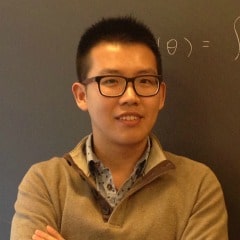
Statistical Dynamic Analysis of Complex Problem-Solving Items: Inference, Prediction, and Intervention
Complex problem-solving (CPS) ability has been recognized as a central skill in this information era. For its measurement, computer-based items have been developed that dynamically simulate CPS scenarios that mimic real-life challenges. In such items, students’ problem-solving processes are collected in computer log files, which not only provide the final outcome (success/failure) of task completion, but also the preceding steps and actions that result in the outcome. Albeit the potential value of CPS process data, they are seldom researched, possibly due to the lack of effective quantitative methods.
This project has three interrelated research goals. The first is to develop dynamic regression tools for analyzing CPS process data, which have the potential to greatly benefit educational research on non-cognitive abilities in general and CPS ability in specific. The second is to analyze real data from large-scale international assessments and make statistical inferences, whose results can be used to validate and improve the designs of CPS items. Finally, based on the learned dynamic regression model, an automatic hint system will be designed and evaluated via simulation study that provides real-time hints to help students improve their CPS ability. Such a system may significantly contribute to the personalized and technology-enabled learning of CPS.
Julie Cohen, University of Virginia
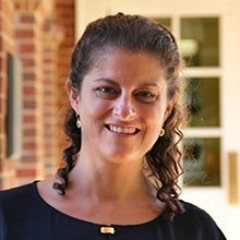
Julie Cohen is an assistant professor of Curriculum, Instruction, and Special Education at the University of Virginia’s Curry School of Education. Her research focuses on the conceptualization and measurement of teaching quality, the ways in which accountability and teacher evaluation systems shape teaching practice, and the development of effective instructional practices in pre-service teacher education and professional development. Her work has been supported by the National Science Foundation, the Spencer Foundation, the Carnegie Corporation of New York, and the Overdeck and Schusterman Family Foundations. Current research includes a cross-institutional study of teacher preparation in three states, as well as a multi-year study of the implementation and effects of Washington DC’s content-focused professional learning curriculum, Learning Together to Advance our Practice (LEAP). Recent publications have been featured in Educational Researcher, Teaching and Teacher Education, Teachers College Record, Child Development, and the Journal of Teacher Education. A former elementary school teacher, she received her doctorate in Curriculum and Teacher Education at Stanford University and was a post-doctoral fellow in the Center to Support Excellence in Teaching at Stanford.
Simulations in Teacher Education: Analyzing the Potential of a New Tool for Teacher Development and Assessment
The proposed research will examine the degree to which virtual reality simulations (VRS) provide a useful platform for developing and assessing prospective teachers. Simulations have intuitive appeal—they give prospective teachers practice with student avatars before practicing with real students, and they can be used to ensure licensing decisions are based on prospective teachers’ actual skills interacting in simulated classrooms. As such, they are being incorporated in nearly a hundred teacher preparation programs and utilized as a tool for consequential licensure exams. However, the utility of VRS for improving teaching depends on how well experiences in the virtual environment generalize to actual classrooms. Similarly, effectively using simulator performance as a screening mechanism for entry into the profession requires a meaningful relationship between the practices demonstrated in VRS and those used in classrooms.
Despite the rapid roll-out of VRS into teacher preparation programs, little research has examined how VRS support prospective teachers’ development and/or relate to practice in real classrooms with real students. Avoiding the trap of technology for technology’s sake necessitates systematic empirical research into how these technologies are being used, and the degree to which and ways in which the technology supports the purported goals. This mixed-methods study will trace the development of teaching practices in VRS over the course of a two-year teacher preparation program, and analyze the relationship between the skills candidates exhibit in VRS and those they display in real classrooms.
Rajeev Darolia, University of Kentucky
Rajeev Darolia is an associate professor of public policy at the University of Kentucky and a visiting scholar of the Consumer Finance Institute at the Federal Reserve Bank of Philadelphia. His research agenda includes projects focused on higher education regulation, student borrowing, financial security, and transitions from high school to college. Dr. Darolia has published in education, public policy, and economics journals, including the Journal of Policy Analysis and Management, Journal of Public Economics, Economics of Education Review, and Journal of Higher Education. His work has been funded by the National Science Foundation, the US Department of Labor, and the Association for Institutional Research. Prior to joining UK, Dr. Darolia was on the faculty at the University of Missouri and served as Director of Research for the Institute of Public Policy. Dr. Darolia holds a PhD in public policy, a master’s degree in economics, and a bachelor’s degree in finance.
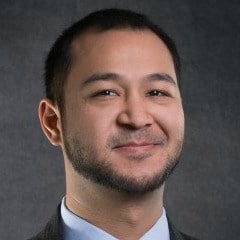
Confined Learning: Who Participates in Education While Incarcerated and What are the Benefits?
Prison educational programs are popular because they are expected to increase ex-prisoners’ employability and stem recidivism. However, we know surprisingly little about who participates in prison education or the benefits of it. I will apply descriptive and causal quasi-experimental analysis to new administrative data on every prisoner released in one state over a 20-year period. I will first identify patterns in prison education program participation, completion, and sequencing, and analyze how these patterns vary by prisoner age, race, ethnicity, gender, and pre-entry education level. I will then delve further into one of the most popular prison education programs: preparation for the GED exam. I will estimate the effect of earning the GED on skill gains, recidivism, subsequent educational program participation, and post-release wages and employment. This proposed project will enhance our understanding of the complex relationships between prison education, demographics, and outcomes in-prison and post-release, and ultimately contribute to improved educational opportunities among an understudied group of structurally disadvantaged students.
Maren Elfert, King’s College London
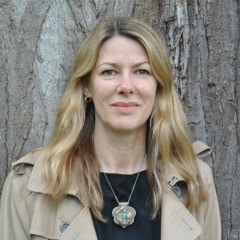
Maren Elfert is a Lecturer in Education and Society in the School of Education, Communication and Society at King’s College London. She holds an M.A. from the Free University of Berlin and a PhD in Educational Studies from the University of British Columbia. Before pursuing doctoral studies, she worked for over a decade as a member of the professional staff at the UNESCO Institute for Lifelong Learning in Hamburg, Germany. Her research examines how international organizations contribute to the globalization of educational ideas, with a focus on the tension between neoliberal approaches to education and discourses of human rights. Her book UNESCO’s Utopia of Lifelong Learning: An Intellectual History (Routledge, 2018) traces how UNESCO has shaped the concept of lifelong learning in the context of the shifting political economy and landscape of global governance of education.
The History of Educational Planning in Developing Countries Through the Lens of the International Institute for Educational Planning (IIEP)
In the 1960s educational planning emerged as a key pillar of development as a foreign policy strategy. My interpretive historical-sociological study will trace the history of educational planning in developing countries through the lens of the International Institute for Educational Planning (IIEP), founded in 1963 by UNESCO, the World Bank and the Ford Foundation, which has greatly contributed to shaping the field. Drawing on interviews and extensive research in several archives in France, Germany and the United States, the study will tie the history of the IIEP to the development of the field of educational planning from the early 1960s to the present time, examining its origins and ideological underpinnings and the changing trends in the thinking about development in the context of the shifting political economy. The study, which will be framed by neo-institutional sociological theory and development theories, will document the history of a highly underresearched organization whose role as focal point and norm-setter of educational trends warrants attention, and it will make a theoretical contribution to the body of knowledge related to educational planning. A scholarly and historical perspective on educational planning is timely in light of recent debates about its shortcomings in the age of the Sustainable Development Goals.
Dania Francis, University of Massachusetts
Dania V. Francis is Assistant Professor of Economics and Afro-American Studies at UMass Amherst. She received her Ph.D. from the Sanford School of Public Policy at Duke University in 2013. Her current research involves using experimental and quasi-experimental methods to identify structural causes of racial and socioeconomic academic achievement gaps. More broadly, Dania’s research interests include examining racial and socioeconomic disparities in education, labor markets and the criminal justice system through the theoretical lens of stratification economics. Dania has taught courses in the economics of education, the history of the education of blacks in the U.S., and contemporary issues of race and education.

Gatekeepers: Do School Counselors Exhibit Racial or Gender Bias in Recommending Students for Advanced Placement Calculus?
In this project, we seek to understand minority and female underrepresentation in advanced STEM courses in high school by investigating whether school counselors exhibit racial or gender bias during the course assignment process. Using an adapted audit study, we will ask a nationally-recruited sample of school counselors to evaluate student transcripts that are identical except for the names on the transcripts, which will be varied randomly to suggestively represent a chosen race and gender combination. Since the only differences in the profiles across participants will be the gender or racial origin of the names on top, we would expect no significant difference by race or gender in the average likelihood of survey participants recommending a particular student profile for advanced coursework. Any differences can be attributed to bias (whether implicit or explicit). Our results may have policy implications for any program that asks individuals to make recommendations that may be subject to bias.
Manuel González Canché, University of Pennsylvania
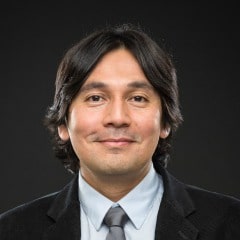
Manuel S. González Canché holds a Ph.D. in Higher Education with cognates in Biostatistics and Economics. He joined the Higher Education division as an associate professor in 2017 and serves as affiliated faculty with the Human Development and Quantitative Methods division and the International Educational Development Program. His research follows two interconnected paths. The first concerns issues of access, persistence, and success, with an emphasis on institution effects–such as 2-year versus 4-year college and distance from home—on students’ outcomes. The second focuses on higher education finance, with emphases on spatial modeling and competition based on spatial proximity and spillover effects. Methodologically, González Canché employs econometric, quasi-experimental, spatial statistics, and visualization methods for big and geocoded data, including geographical information systems and network modeling. Given his low-income and first-generation in college background, he is particularly interested in studying factors and policies that may enhance low-income, minoritized, and/or underserved students’ opportunities for educational and occupational success. His long-term professional goal consists of the continued search of opportunities to conducting research capable of having successful and meaningful real-life gap-closing consequences.
Overcoming the Geography of Disadvantage: A Spillovers Framework to Identify Structural Means to Enhance Community College Students’ Educational Outcomes Despite Their Location
Community colleges offer access to higher education to the largest share of underserved learners in the United States. Yet, because many community college students do not complete their two- and four-year degrees, these institutions struggle to realize their democratizing potential. This study posits that local access to resources is an important factor that may affect community colleges’ students’ success, but that even in cases where no such resources are present there may be other structural procedures taking place at some effective community colleges that are worth studying. A better understanding of these institutions is required to design strategies that may help overcome geography of disadvantage notions. Accordingly, using big data and ethnographic techniques, the overarching purpose of this study is to identify structural mechanisms that may bolster the democratizing potential of community colleges despite, or in spite of, a lack of local availability of resources.
This larger purpose entails three subpurposes. The first is to provide a conceptual and analytic framework to detect public two-year institutions across the contiguous United States that have public and private nonprofit four-year institutions within commuting distance. The second subpurpose is to apply the proposed analytic framework to recognize institutions in which their students tend to have better academic outcomes (transfer rates and eventual four-year degree attainment). This subpurpose will also enable the quantitative measurement of the characteristics of students, institutions, and locality that are related to increases in students’ likelihood of academic success. The third subpurpose is to identify the contextual and procedural characteristics of the four community colleges with the strongest positive effects observed in the quantitative part of the study. Two of these colleges will have at least one four-year college within commuting distance, and the other two will not have these neighbors. Using these colleges as case studies will allow for a better understanding of practices and processes that take place in these institutions that are arguably different based on their location. For this last purpose, I will use ethnographic methods based on on-site participant observations and interviews with advisors, faculty, and students. This will enable a better understanding of institution-level practices and culture, as well as analysis of their situated contexts as identified in the proposed analytic model. As a result of this study, successful community colleges’ processes and strategies in overcoming concentrated disadvantage barriers will be identified. Plans of actions and future research will be recommended to replicate these successful practices.
Terrance Green, University of Texas at Austin
Terrance L. Green is an assistant professor at the University of Texas at Austin in the Department of Educational Leadership and Policy. His research has examined: 1) how school reform intersects with equitable community development, with a focus on school and community leaders and 2) how geography influences educational opportunity for children of color in urban school districts. Terrance’s research has been featured in Teachers College Record, Educational Administration Quarterly, and Journal of School Leadership. In 2017, Terrance received the Early Career Award from the American Educational Research Association’s (AERA) Division A (Administration, Organization, and Leadership), and in 2016, he received the William J. Davis Award for the most outstanding article published in a volume of Educational Administration Quarterly. He earned his Ph.D. from the University of Wisconsin-Madison in Educational Leadership & Policy Analysis, and a B.S. in Biology Education from Kentucky State University, a Historically Black College & University (HBCU). Terrance is a former high school science teacher.

There Goes the Neighborhood: Examining School-Level Impacts and Responses to Gentrification in Three Urban Districts
A growing number of cities across the United States are experiencing gentrification in historically disinvested and racially segregated urban neighborhoods (Pearman & Swain, 2017). While gentrification has been a concern for urban cities for over 50 years, the manifestations of gentrification have become more complex and widespread in the past two decades, as gentrification has expanded from downtowns to neighborhoods across cities. Gentrification has thus garnered considerable public debate and empirical attention. The empirical research indicates that gentrification can result in the restructuring of urban neighborhoods through the displacement of low-income residents of color, the loss of their culture and institutions, and the influx of middle to upper-class whites. Yet, we know less about the complex ways that neighborhood gentrification influences schools across place and time.
As such, this study will compare how neighborhood gentrification plays out and influences public schools in three U.S. cities (total) with early, moderate, and extreme stages of neighborhood gentrification to better understand the complexities of gentrification across place and time. The study will also examine how school-based actors understand and respond to the impacts of neighborhood gentrification on local schools. Finally, findings from this study can help policymakers as well as district and school leaders develop effective policies and practical interventions for urban schools located in gentrifying neighborhoods.
Paul Hanselman, University of California, Irvine

Paul Hanselman is an assistant professor of Sociology at the University of California, Irvine. He studies educational disparities, social stratification, and the potential for school-based interventions to mitigate inequality. He is particularly interested in understanding the ways in which the impacts of individual interventions vary across local educational contexts, both for insights into basic social processes and as a means to improving educational outcomes. Hanselman received his PhD in Sociology from the University of Wisconsin-Madison, and he was previously a postdoctoral fellow in the School of Education at the University of California, Irvine and the Population Research Center at the University of Texas at Austin.
Situating the Promise of a Growth Mindset within the Structure of School Curricular Opportunities
Recent research highlights the benefits of a growth mindset, the belief that intelligence is malleable, which supports resilient responses to academic challenges. As such, brief interventions promoting this mindset show positive impacts for low-achieving students that narrow educational inequalities. Although these effects theoretically depend on students’ local learning context, we know little about when and where students’ mindsets matter, especially as students navigate the variegated and often unequal structure of school opportunities created by curricular differentiation. This project draws on two data sources—large-scale administrative data from middle and high school students in five large California school districts and a new nationally representative experimental test of a mindset intervention among 9th grade students—to analyze heterogeneity in the effect of a growth mindset on academic outcomes across different structural positions. I will develop measures of local opportunities based on course-taking dynamics, explore associations between mindset and achievement in the observational data, and assess contextual heterogeneity in the causal impacts of a growth mindset in the experiment. By integrating psychological and sociological insights, this work represents an important step in maximizing the promise of both individual and organizational strategies to promote greater educational success and equity.
J. Bryan Henderson, Arizona State University
J. Bryan Henderson received his PhD from Stanford University in Science Education. His research pursues two crucial objectives: (1) given the substantial empirical evidence for the importance of our prior thinking in the construction of new thinking, learners need to be provided spaces where they feel safe to share their thinking at whatever stage their ideas might be in; and (2) how we exchange ideas can vary in sophistication, and hence, supports are necessary for students to articulate their thinking and the sharing of those ideas in an increasingly critical, evidence-based fashion. Henderson is interested in the utilization of educational technology to facilitate critical, peer-to-peer science learning. His classroom-based research on critical speaking and listening intersects with his psychometric development of assessments that gauge how students learn science through evidence-based argumentation. As the director of the Braincandy project (www.braincandy.org), Henderson has developed a cloud-based technology that affords students the safety of participating in classroom activities anonymously, and then makes discrepancies in anonymous student thinking transparent to the entire classroom through visualization tools. In turn, these differences in thinking set the stage for authentic, peer-to-peer argumentation as students seek to overcome uncertainty in the pursuit of classroom consensus. With six college degrees and a research background in astrophysics, Henderson has extensive experience teaching a multitude of courses in learning theories, statistics, and physics. He is currently an Assistant Professor of Learning Sciences at Arizona State University, where he is a recipient of the ASU Centennial Professorship Award for outstanding teaching, leadership, and service. Henderson is a Principal Investigator on a 3-million-dollar collaborative research grant between ASU and UC Berkeley, funded by the National Science Foundation.

Development of the Science Dialogue Heuristic: A Framework for Supporting Oral Argumentation
A primary goal of this proposal is to provide students a Science Dialogue Heuristic (SDH) that supports oral argumentation through a promotion of epistemic vigilance, which is an inclination for frequent questioning that recognizes the importance of critique. The proposed study will explore how classroom implementation of the SDH can work to improve the depth in which students express their thinking. Middle school science teachers will be trained to use a classroom response technology I have developed to promote argumentation, and the resulting oral arguments will provide a testing ground for iterative development of the SDH. Depth of thinking is operationalized in terms of the cognitive load complexity of arguments provided by students, and this complexity will be analyzed through an empirically-validated argument diagramming system that I have developed. Complexity analysis of students supported with the SDH will be compared to their counterparts not privy to the SDH. Not only can this proposed research help support students engaged in a new way of learning science, but the SDH stands to benefit peer-to-peer learning writ large, as the promotion of epistemic vigilance can benefit any domain where decision-making is necessary amidst a diversity of information and perspectives.
Ethan Hutt, University of North Carolina, Chapel Hill
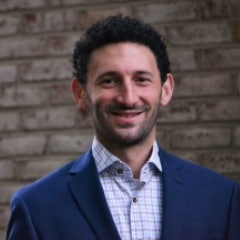
Ethan Hutt is an Assistant Professor in the School of Education at the University of North Carolina – Chapel Hill. His research focuses on the historical relationship between quantification, education policy, and the law. In particular, Hutt’s work focuses on the numbers and metrics that are used to describe, define, and regulate American school systems and asks: Where did these numbers—whether grades, test scores, value-added measures—come from? How did they become central to the work of schools? How did they gain and maintain their legitimacy? What effects have they had for how we think about what schools can (and should) do? In pursuing these questions Hutt’s research has explored the history of the GED, grading practices, standardized test use, value-added measures, and measures of school attendance. He is the co-editor of Absent from School: Understanding and Addressing Student Absenteeism (Harvard Education Press, 2019).
Long-Term Relationships: How Longitudinal Datasets Shaped our Views of Educational Attainment, Inequality, and the American School System
Long-Term Relationships draws on archival records and oral histories to trace the first three decades of nationally-representative longitudinal data through a history of its first three datasets: Project Talent, the National Longitudinal Survey of 1972, and High School and Beyond. In doing so, it asks: what choices were made in the design and execution of these datasets? How did these choices not only reflect but also construct specific visions of the American school system? What were the consequences of those choices for our understanding of the operation and outcomes of the American school system? How, for instance, did assumptions about the operation of class or racism in schools become encoded in variables and, in turn, shape understandings of student achievement, educational inequity, and the appropriate policy responses? Answering these questions adds to our understanding of how data shape both understanding and governance. In particular, this history demonstrates that while these data provided only mixed progress towards the stated goal of greater educational equity, they proved “useful” in other ways: providing researchers and policymakers with an array of possible research and policy targets and sustaining the belief that the education system, if properly tweaked and optimized, could ultimately secure educational equity.
Adrienne Keene, Brown University
Adrienne Keene is an Assistant Professor of American Studies and Ethnic Studies at Brown University. Her research areas include college access, transition, and persistence for American Indian, Alaska Native, and Native Hawaiian Students, including the role of pre-college access programs in student success. Additionally, she examines representations of Native peoples in popular culture and the ways that Indigenous peoples are using the Internet, social media, and new media to challenge misrepresentations and create new and innovative spaces for art and activism. As a citizen of the Cherokee Nation, Dr. Keene has a deep personal commitment to exploring research methodologies that empower Native communities and privilege Native voices and perspectives, with the ultimate goal of increasing educational outcomes for Native students. She earned her BA from Stanford University in Native American Studies and Cultural Anthropology, and her doctorate from the Harvard Graduate School of Education, in Culture, Communities, and Education.

“I just had to be there”: Native College Student Activists and Their Relationships to the #NoDAPL Movement
From April 2015 through November 2016 thousands of Native and non-Native water protectors converged on the plains of North Dakota to protect water, land, sacred sites, and tribal sovereignty with the rallying cry of Mni Wiconi (Water is Life). Among those protectors were an unknown number of Indigenous college students, some there for a weekend, others who dropped out to join the movement. This study seeks to share the stories of college student-activists who participated in the movement against the Dakota Access Pipeline (DAPL)—on their campuses, digitally, or at the resistance camps—to understand the ways their activism in the largest Indigenous movement of their lifetimes intersected with their motivations and goals for their college work and their relationships to their institutions themselves. I explore the following research questions: How did Native students come to participate in #NoDAPL? How did they make meaning from their varied experiences in the movement? What are their understandings of the outcomes of those experiences in the context of their educations? I utilize qualitative interviews with Native college students from a variety of institutions (Private colleges, public universities, and tribal colleges), as well as online focus groups through an indigenous sharing circle methodology (Kovach, 2009; Tachine, Cabrera, & Yellow Bird, 2017), to construct a Portrait (Lawrence-Lightfoot and Davis, 1997) of Native college student involvement in #NoDAPL.
Christina Krist, University of Illinois at Urbana-Champaign
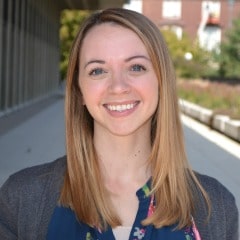
Stina Krist is an assistant professor of science education in the Curriculum & Instruction department in the College of Education at the University of Illinois at Urbana-Champaign. She received her Ph.D. in Learning Sciences in 2016 from Northwestern University, thanks in part to an NAEd/Spencer Dissertation Fellowship. She was also a postdoctoral associate at the University of Maryland College Park before joining the faculty at Illinois. Her current projects include examining how students demonstrate care in the midst of knowledge-building interactions; exploring teacher thinking and learning about how to support students’ epistemic agency in science; and developing software tools for analysis of video data.
The Role of Trust in Building Science Knowledge: Exploring the Relational Dimension of Epistemological Development
This study examines the connections between interpersonal trust-building and students’ participation in authentic disciplinary learning, using science education as a particularly timely and generative context of focus. Current reforms in science education aim to engage students in science knowledge building practices (NGSS Lead States, 2013; NRC, 2012), which requires substantial amounts of talk, interaction, and discussion (Quinn, Lee, & Valdés, 2012). I aim to explicate not simply that, but how these relational dynamics are integral to disciplinary learning. Drawing on literature on children’s epistemological development in practice (Berland et al., 2016), affect-based trust (McAllister, 1995), and feminist critiques of science and schooling (Harding, 1986; Noddings, 1988), I examine how trust developed in an 8th grade science class over the course of two content-area units. This case provides a strategic window into the co-constituencies of and tensions between relational and disciplinary messages in epistemological development. Exploring the nature of these interactions will contribute to our understanding of how to build relational dynamics in classroom communities that support rich disciplinary learning, and how those relational dynamics shape the version of the nature of the discipline about which students learn.
Luke Miratrix, Harvard University
Luke Miratrix is an assistant professor in the Harvard School of Education and affiliate faculty in the Harvard Department of Statistics. His primary research focus is on causal inference methods. In particular, much of his work is on developing methodology to assess and characterize treatment effect heterogeneity in randomized clinical trials and observational studies, and on characterizing variation in treatment impact on post-treatment or latent subgroups such as from non-compliance. He also works on these concerns in the statistical evaluations of cluster-randomized and multi-site trials. Other research interests include data mining using high-dimensional and sparse (regularized) methods, with a focus on text summarization and causal inference with text in contexts such as newspaper corpora, legal decisions, and databases of free-text reports. In his work, his main concerns are usually related to the applicability, interpretability, and legitimacy data-driven arguments, which generally leads him to examine the performance and usability of simple, minimal-assumption methods. Luke Miratrix received his Doctorate in Statistics from University of California, Berkeley in Spring, 2012 after switching to that field in 2009 from SESAME, a doctorate program in Mathematics and Science education also at Berkeley. He also has a MS in Computer Science from M.I.T., a BS in Computer Science from the California Institute of Technology, and a BA in Mathematics from Reed College. Between graduate careers, he was a high school teacher and tutor for 7 years

Methodology for Studying Treatment Effect Heterogeneity in Education
An understanding of how much variation treatment variation there is in an evaluation, and what predicts it, is integral to policymakers as they attempt to use findings from randomized trials to form and expand policy. Frustratingly, while so seemingly important, treatment effect heterogeneity is difficult to detect, difficult to predict, and difficult to model. This project seeks to use a blend modern causal inference, machine learning methods, and classic statistical tools from survey sampling to extend existing approaches for treatment effect variation into education contexts. The goal is to generate three methodological tools to best answer several specific policy-relevant questions that pertain to treatment variation in three distinct education contexts (an early childhood center intervention, a middle-school teacher professional development course, and a large district-run high school lottery). These tools are (1) an improved method for detecting the presence of treatment variation by extending current methods to incorporate covariates in order to increase power, (2) a method for using machine learning to predict the units most susceptible to treatment by identifying the likely axes of maximal variation in treatment, and (3) a method for constructing models for treatment variation in order to separate contextual variation as compared to program variation in multi-site trials. This work will provide concrete, accessible methods for taking full advantage of covariates to increase power while, as much as possible, maintaining low model dependence in order to preserve the validity of the original randomized experiment.
Nicole Mirra, Rutgers, The State University of New Jersey

Nicole Mirra is an assistant professor of urban teacher education in the Graduate School of Education at Rutgers University. Her research explores the intersections of critical literacy and civic engagement with youth and teachers across classroom, community, and digital learning environments. Central to her research and teaching agenda is a commitment to honoring and amplifying the literacy practices and linguistic resources that students from minoritized communities bring to civic life. Her work has appeared in Review of Research in Education, Journal of Literacy Research, International Journal of Qualitative Studies in Education, Urban Education, and more. She is the author of Educating for Empathy: Literacy Learning and Civic Engagement (Teachers College Press, 2018) and Doing Youth Participatory Action Research: Transforming Inquiry with Researchers, Educators, and Students (Routledge, 2015).
Digital Democratic Dialogue: Re-Imagining Youth Civic Engagement through Participatory Politics
The Black Lives Matter and DREAMer movements are two examples of how youth civic engagement in the United States is changing as young people bypass traditional civic and political gatekeepers and leverage social media to make their voices heard around the world. Although these interactive and creative forms of engagement, which researchers describe as participatory politics, are increasingly influencing public discourse, their potential lessons for youth civic education require further theorizing and research, particularly in formal school settings. This study explores how young people in four demographically and politically distinct communities across the country understand and engage in participatory politics in the context of high school literacy classrooms. Utilizing a social design approach in which participating teachers and the researcher co-construct student learning cycles focused on the analysis, design, and sharing of digital political narratives, the study will highlight the literacy aspects of participatory politics and its implications for re-imagining the nature and purpose of civic expression. It will trace how young people interpret online political rhetoric, design persuasive digital texts, and communicate online with peers in different social contexts. The study aims to facilitate the re-design of civic education curriculum and instruction in public schools to foster equity and social action.
Janet Njelesani, New York University
Janet Njelesani is an Assistant Professor of Occupational Therapy at NYU Steinhardt School of Culture, Education, and Human Development. She is an occupational therapist with a PhD in Rehabilitation Science and Global Health from the University of Toronto. Janet has a rich and active program of research that illuminates issues of inclusion and equity for children with disabilities. She draws from critical social science theories to examine macro-level phenomena and incorporates several disciplinary and methodological approaches in her work to generate knowledge, drawing what is best from the fields of inclusive education, child protection, rehabilitation, and disability. Her research foregrounds the experiences of students with disabilities living in low- and middle-income countries, a population that has traditionally been neglected in research, and seeks to reach diverse audiences to inform research, policy, and programming. Her current program of research investigates how social, cultural, and institutional practices influence inclusion, protection, and education for children with disabilities living in Zambia. To her research, Janet brings a breadth of expertise and experiences, having worked as a clinician for over 15 years and through her role providing disability and rehabilitation technical advice to Governments, United Nations agencies, and international non-governmental organizations.

Generating and Preventing Violence: Schools’ Responses to School Violence Against Students with Disabilities in Zambia
Violence at school exists in every country of the world, spanning across cultures, classes, education levels, and abilities, including in Zambia, the country that is the focus of this study. While violence can and does occur against all children of all demographics, those with disabilities are at a significantly greater risk than their non-disabled peers. Schools are obligated to protect children from all forms of violence, and educators’ responses are key to reducing this phenomenon. However, a teacher’s failure to act or to provide consistent responses may cause more problems for students. This study explores the role that educators’ attitudes, beliefs, and behaviors play in responding to school violence against students with disabilities in Zambia. In this qualitative study, drawing from social-ecological and critical theories, multiple factors, such as the ability-level and gender of the child, school policies, and the prevalent stigma surrounding disability are examined to understand how they interact to shape educators’ attitudes and responses to violence. Collaborating with local partners, including the Ministry of Education in Zambia, data generation includes an analysis of school documents and semi-structured interviews with teachers, school leadership, and students with disabilities in Lusaka, Zambia. Findings will provide direction for school violence prevention and intervention efforts, with the greater goal of enhancing the effectiveness of educator support and school protection policies.
Caitlin Patler, University of California, Davis
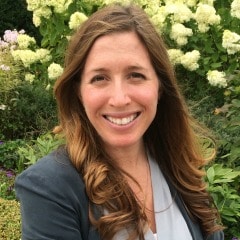
Caitlin Patler is Assistant Professor of Sociology at University of California-Davis, where she is a Faculty Affiliate at the Center for Poverty Research, the Migration Research Cluster, the Social Control Cluster, and the Human Rights Program. Dr. Patler’s research focuses on socio-legal inequalities and their links to a range of educational, socioeconomic, and health outcomes. She is currently conducting mixed-methods research on: 1) the Deferred Action for Childhood Arrivals (DACA) program, 2) immigration detention, deportation, and the intersections of immigration and criminal law, and 3) Legally vulnerable workers including noncitizens and individuals with criminal records. Dr. Patler’s work has appeared most recently in International Migration Review, Journal of Population Research, Social Problems, and Social Science & Medicine, and has been covered by the LA Times, Public Radio International, and other media outlets.
From Undocumented to Lawfully Present: Do Changes to Legal Status under the Deferred Action for Childhood Arrivals (DACA) Program Impact Educational Inequality among Immigrant Youth?
Immigrant legal status is a central axis of stratification in contemporary U.S. society and is linked to a range of educational inequities. For instance, Latino undocumented youth are far less likely to graduate high school and attend college than documented immigrants and native-born youth (Greenman and Hall 2013, Patler 2017). However, very few studies have tested the impacts of changes to legal status on educational inequalities, with a particular gap in research on the longitudinal processes and mechanisms through which these changes may occur. The Deferred Action for Childhood Arrivals (DACA) provides a unique and unprecedented opportunity to analyze such changes. In June 2012, President Obama announced the DACA Program by executive order, granting a subset of undocumented youth temporary relief from deportation and access to work authorization and other related benefits. However, in September 2017, the Trump administration announced plans to phase out and eliminate the program. In this study, Caitlin Patler uses original longitudinal and mixed-methods data to address a series of questions about DACA’s role in influencing the educational disadvantages faced by undocumented children and youth. Importantly, Patler’s longitudinal study design allows her to assess how and why these impacts might vary over time, across individuals, and in response to changing local and national political environments?
Emily Penner, University of California, Irvine
My research focuses on educational inequality and K-12 education policy, and considers the ways that districts, schools, and teachers can contribute to or ameliorate educational inequality. I am currently involved in projects examining teacher recruitment and retention in constrained labor and housing markets, how school sorting processes affect student opportunities to learn, and how educator-initiated curricula that center the cultural and historical experiences of traditionally marginalized students impact student outcomes.

Before & After School: Using Administrative Records to Support Teacher Recruitment & Retention
Teacher turnover costs districts across the country $2.2 billion annually, costs which are disproportionately borne by districts serving low-income students. Moreover, turnover negatively affects school climate and harms student achievement. Using novel school-district human resource data linked with IRS records, I provide policy-relevant insights into how districts can address turnover. These data include teachers from a large urban district and an entire state in the Western United States, allowing for an investigation of the dynamics of turnover in both high cost-of-living urban areas and rural school districts over the past fifteen years. I first examine the economic and residential transitions of former teachers. This will help districts understand whether teachers leave for better economic opportunities, particularly in high-cost, urban and remote, rural areas. To better understand teacher mobility, I also consider the role that residential relocation, housing costs, and partner/spouse job changes play in these transitions. I also use machine learning techniques to code unique applicant essay data to examine whether applicants who express particular attitudes are more likely to remain teachers for longer. This study will help school districts across the country better target their limited resources at more effective recruitment and retention strategies.
Gabriela Richard, Pennsylvania State University
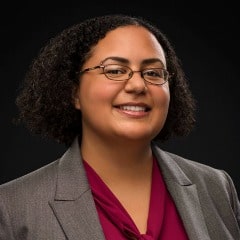
Gabriela T. Richard is a researcher, designer and educator of learning technologies, media, games and play. She is currently an Assistant Professor in the Learning, Design and Technology program at Penn State, where she conducts research on the ways that diverse youth and adults engage in learning, collaboration, identity formation, and self-efficacy with gaming, livestreaming, makerspaces and computing. Prior to getting her doctoral degree, she worked as an instructional designer and an interactive media developer, as well as created, spearheaded and taught early maker and design education efforts (then termed “physical computing”) in the New York City public schools with underserved students and teachers. In particular, she explores ways that technologies can be culturally-situated and inclusive and employs intersectionality as a frame for understanding complex sociocultural relationships across gender, race/ethnicity, culture, sexuality and dis/ability in media and design. She has written extensively about video games, diversity and inclusive design, and co-edited the third book in an influential series on gender and gaming, Diversifying Barbie and Mortal Kombat: Intersectional perspectives and inclusive designs in gaming (ETC/CMU Press). She has also authored several papers on equitable and inclusive learning with culturally-situated and designed technologies in coding, design, making and informal computing education, often taking a learner-centered perspective and approach. She is the recipient of multiple awards, fellowships and grants from organizations including the National Science Foundation, the American Association of University Women, the University of Pennsylvania, Penn State and the American Educational Research Association.
Cultivating Inclusive Ecologies of Learning through Making and Gaming: Interrogating Culturally-Sustaining Pedagogical Approaches and Technology-specific Material Affordances for Learning and Diverse Engagement
Despite influential theories and designs, research and practice continues to face significant questions around key crucial relationships between the scale of influence of informal or interest-driven technology activities to lifelong pursuits, and the complexities involved in scaffolding culturally-sustaining, equitable and accessible STEM learning in informal making and gaming contexts. For instance, youth-supportive content creation communities, such as Scratch, have become increasing critiqued for agnostic design, while commercial content creation platforms that have traditionally operated from content agnostic positions have become increasingly leveraged for formal and informal education. The proposed research for this project will integrate this collective body of work to interrogate how culturally-situated tools and culturally-responsive practices are (or are not) designed within wide-reaching, informal learning ecologies around making and gaming, how learners respond to those designs, and how we can bring effective applications from more formally-influenced environments to these naturalistic, interest-driven ones. Richard will utilize naturalistic observational techniques, mixed methods and iterative design-based research techniques to (1) better understand the ways that learners integrate playing and making in their naturalistic learning ecologies, by utilizing livestreaming as a participatory learning and teaching tool; (2) interrogate the affordances and limitations for culturally-sustaining practices in informal learning, including in naturalistic learning ecologies; and (3) explore alternative models for fostering inclusivity by utilizing and reframing implicit values in digital media and content creation tools. Results will provide groundwork for scalable interventions aimed at designing informal learning environments and systems for socioculturally diverse and prosocially supportive computational participation and STEM pathways.
Timothy San Pedro, The Ohio State University
Timothy San Pedro is an Assistant Professor of Multicultural and Equity Studies in Education at Ohio State University. His scholarship focuses on the intricate link between motivation, engagement, and identity construction to curricula and pedagogical practices that re-center content and conversations upon Indigenous histories, knowledges, and literacies. Recent companion article publications in Equity and Excellence in Education and Research in the Teaching of English focus on Native youth silences as agentive forms of survivance. His latest article, co-authored with Dean Valerie Kinloch, appeared in the American Educational Research Journal’s Centennial issue and argues for a move toward Projects in Humanization, which seek to center stories and the development of dialogic relationships within research. He serves as the chair of the Standing Committee on Research for the National Council of Teachers of English and is a member of the Literacy Research Association’s Ethic Committee. San Pedro is an inaugural Gates Millennium Scholar, Cultivating New Voices Among Scholars of Color Fellow, a Ford Fellow, a Concha Delgado Gaitan Council of Anthropology in Education Presidential Fellow, and, most recently, a Spencer Postdoctoral Fellow.
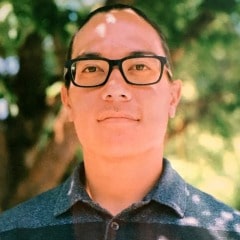
Lessons of Indigeneity: Intergenerational Learning between Native American Parents and Their Children
This research project titled “Lessons of Indigeneity: Intergenerational Learning between Native American Mothers’ and Their Children” seeks to discover the ways Indigeneity is shared within and beyond the home and how such lessons may provide insight into the resiliency, survival, and academic achievement in schools. It actively challenges scholarship focusing on parental involvement since much of the work misses the multiple ways Indigenous (and nondominant) parents “…participate in their children’s education because they do not correspond to normative understandings of parental involvement in schools” (Bauedano-López, Alexander, Hernandez, 2013, p. 149). This work seeks to offer critical Indigenous frameworks to examine “parental involvement” in ways that forward cultural processes, which recenter mothers as educators, cultural brokers, and storytellers. In addition, it focuses upon what Indigenous Knowledges are shared, how they are taught and learned, and why children and their mothers feel it necessary to engage in such learning.
Lauren Schudde, University of Texas

Lauren Schudde is an assistant professor of Educational Leadership and Policy at The University of Texas at Austin. She holds a PhD in Sociology from the University of Wisconsin-Madison. Her research examines the impact of educational policies and practices on college student outcomes, with a primary interest in how higher education can be better leveraged to ameliorate socioeconomic inequality in the United States. Her work has been published in Review of Research in Education, Review of Higher Education, and Research in Higher Education.
Laying Bare the Hidden Curriculum: The Effect of Institutional Practices and Policies on Vertical Transfer from Community Colleges
Community college should offer an affordable alternative pathway to a baccalaureate for entrants with bachelor’s degree ambitions. Yet most community college students with baccalaureate intentions never transition to a four-year college. Policymakers and administrators endeavor to improve student outcomes, but often do so blind—there’s little evidence on which policies or practices improve transfer outcomes. To shed light on this problem, I collected detailed information on community college practices and policies in Texas, a state that educates the second largest population of college-goers in the nation and relies heavily on its community colleges to do so. Drawing on interviews with college personnel and institutional documents from 20 community colleges, I created indicators of transfer practices, capturing transfer-specific services (e.g., transfer advising, centers, and events), articulation agreements, and implementation of state policies. In this study, I combine the college measures with longitudinal, student-level, state administrative data. Using regression and multi-level path models, I will estimate the impact of practices on transfer and degree attainment and examine which students benefit the most from various practices. The results stand to inform growing policy debates regarding which practices and policies improve community college student outcomes.
Campbell Scribner, University of Maryland
Campbell F. Scribner is an assistant professor in the Department of Teaching & Learning, Policy & Leadership at the University of Maryland, College Park, where he offers courses in the history and philosophy of education as well as educational policy. His primary area of research is the history of school governance and curricular reform. His first book, The Fight for Local Control: Schools, Suburbs, and American Democracy (Cornell University Press, 2016), examines school district politics across the twentieth century, with attention to desegregation, funding, professionalization, and curriculum. Other articles have appeared in the American Journal of Education and History of Education Quarterly. Scribner holds a B.A. in history from Haverford College, and a Ph.D. in history and educational policy from the University of Wisconsin, Madison. He is a parent and supporter of public schools in Montgomery County, Maryland.

School Wreckers: A History of Destruction in American Education
Vandalism has always plagued American schools. Property destruction cuts across lines of class and race; it afflicts urban, suburban, and rural areas; and it is as often perpetuated by adults as by children. School Wreckers uses vandalism as a lens into the lived experience of education, from the colonial era to the present. Examining bathroom graffiti, broken windows, and arson attacks, its goal is to manifest in physical terms the inequalities and power struggles underlying educational policy, to present a countervailing and (in multiple senses of the word) graphic history of schooling. The study draws from philosophy, criminology, and developmental psychology to offer new insights into the meanings that adults have assigned to vandalism, but, as importantly, it foregrounds children’s voices, which rarely appear in the historical record. By analyzing physical artifacts as well as archival sources, pairing adult reactions with the damage that prompted them, School Wreckers allows readers to see the complexities of education through the eyes of its often resistant subjects, prompting broader reflection on the status of schools as community and custodial institutions.
Rowan Steineker, Florida Gulf Coast University

Rowan Steineker is an Assistant Professor at Florida Gulf Coast University. She received a Ph.D. in History from the University of Oklahoma in 2016. Her research focuses on the history of education, as well as the intersecting histories of Indigenous and African American peoples in colonial contexts. Her current book project, “The Struggle for Schools” examines the history of education in nineteenth century Indian Territory and early Oklahoma. In particular, it focuses on the institutional history of the nineteenth-century Mvskoke Creek Nation’s self-determined education system and its colonization at the turn of the twentieth century. Her research has received previous support from the Newberry Library, Phi Alpha Theta, and the National Academy of Education/Spencer Foundation and her work has appeared in the History of Education Quarterly
The Struggle for Schools: Education and Sovereignty in Nineteenth-Century Indian Territory
“The Struggle for Schools” examines the history of education in nineteenth-century Indian Territory and early Oklahoma. In particular, it explores the institutional history of the Mvskoke Creek Nation’s self-determined school system and its colonization at the turn of the twentieth century. In response to settler colonial policies during the 1800s, the Mvskoke Creek government and collectively the Five Tribes (Creek, Cherokee, Choctaw, Chickasaw, and Seminole Nations) employed nation-building strategies to meet the needs of their citizens. As part of this larger process, the Mvskoke Creek Nation created extensive public education programs – primary schools, secondary academies, college scholarships, and teaching training – for their Native, Afro-Native, and African American freedmen citizens. This model not only provided indigenized formal education, it also proved to be a viable alternative to U.S. federal Indian education policies during the same era. By the 1890s, however, colonization and white supremacy drastically altered the state of education in Indian Territory. The federal government dissolved the Five Tribes’ institutions and mandated that Native students attend newly formed public schools with white settlers. Meanwhile, Afro-Natives and African American settlers became subject to Jim Crow segregation. This complex history reveals the diversity of Native American educational experiences how they have intersected with African American and Euro-American education in colonial contexts.
Walter Stern, University of Wisconsin-Madison
Walter C. Stern is Assistant Professor of Educational Policy Studies at the University of Wisconsin–Madison. He earned his Ph.D. in History from Tulane University, and his research focuses on the historical intersection of race and education in the urban United States. He teaches courses in History, Afro-American Studies, and Educational Policy Studies on topics relating to the history of education in multicultural America, education and the Civil Rights Movement, the history of youth activism, and schools and the “urban crisis.” His recently published book Race and Education in New Orleans: Creating the Segregated City, 1764-1960 explores the critical role that schools played in the development of the modern segregated metropolis. His teaching and research interests developed out of his experiences teaching public high school in Mississippi, covering education for a daily newspaper in Georgia, and working as a consultant for multiple education initiatives in Louisiana.
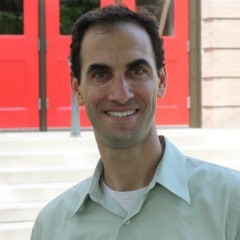
Education for Imprisonment: School Desegregation and the Roots of Mass Incarceration in the World’s Prison Capital
Louisiana’s path to becoming the world’s incarceration capital began in schools. As the state prepared to dramatically expand school desegregation during the late 1960s, a growing spirit of inter-racialism within New Orleans suggested that Louisiana’s largest city was prepared to redirect its long history of racial inequality. Yet violence quickly erupted within the city’s desegregating high schools as new types of black activism collided with equally adaptive forms of white resistance.
Black students were at the center of this innovative phase of the Civil Rights Movement, and in New Orleans and nationally they organized around a remarkably similar set of issues: against discriminatory disciplinary policies, police surveillance, and unequal academic and extracurricular opportunities and for Black History and the formation of Black Student Unions. While white students often responded violently to black activism and assertiveness, white and black adults regularly misunderstood—or actively dismissed—black students’ grievances. By harshly penalizing black youth and expanding security and police surveillance within and outside of public schools, school, municipal, state, and federal officials laid the groundwork for mass incarceration.
This study draws upon previously unavailable archival sources to explore life inside desegregating and resegregating high schools during a period when the future of the Civil Rights Movement and American liberalism hung in the balance. The heart of the project is a micro-history of one formerly white New Orleans public high school from 1967, which was the year it first admitted black students, to 1975, which was the year its last white students left. Expanding upon recent historical scholarship on the local, state, and federal initiatives that spawned mass incarceration and the school-to-prison pipeline, this book project explores the following question: in the state with the industrialized world’s highest incarceration rate, how did conditions inside desegregating public high schools affect the development of punitive policies within and outside of schools, and what were the consequences of those policies for students, schools, and their communities?
Rebecca Tarlau, Pennsylvania State University

Rebecca Tarlau is an Assistant Professor of Education and Labor and Employment Relations at the Pennsylvania State University, affiliated with the Lifelong Learning and Adult Education program, the Comparative and International Education program, and the Center for Global Workers’ Rights. Her ethnographic research agenda has three broad areas of focus: (1) Theories of the state and state-society relations; (2) Social movements, critical pedagogy, and learning; (3) Latin American education and development. Her forthcoming book, Occupying Schools, Occupying Land: How the Landless Workers Movement Transformed Brazilian Education (Oxford University Press) examines the educational initiatives of the Brazilian Landless Workers Movement (MST), a national social movement of rural workers struggling for agrarian reform. This research explores the movement’s attempt to transform education across the country, focusing on the micro-politics of grassroots educational reform: the strategies activists use to convince state actors to adopt their initiatives and the political and economic conditions that affect state-society interactions concerning schools. Her scholarship engages in debates in the fields of political sociology, international and comparative education, adult education, critical pedagogy, global and transnational sociology, and social theory.
Teacher Activism Across the Americas: Union Politics and Educational Change in Brazil, Mexico, and the United States
Under what conditions do unions start acting beyond their economic interest and become broader actors for social change? In this study, I answer this question by analyzing instances of “oppositional unionism” within teachers’ unions in Brazil, Mexico, and the United States. Oppositional unionism occurs when union members come together to contest the leadership of their union and transform the union’s daily practices, priorities, and demands. By examining the diversity of internal groups and theories of social change within unions, I contest the assumption that teachers’ unions are unitary actors simply “blocking” education reform efforts. Instead, drawing on the labor studies and social movement literature, I argue that unions are complex organizations that reflect their political-institutional contexts, which shape their forms of political engagement. This research is comparative and ethnographic, focusing on the internal politics of teachers’ unions in three countries. Through participant observation, interviews, and archival research, I examine the relationship between teachers’ unions, the state, and political parties; internal union divisions; the moments when teachers organize for broader demands; and how union disputes influence education. This project will shift our understanding of teachers’ unions as simply “self-interested” or “selfless,” to a more nuanced assessment of the role teachers play in politics, the diversity of political groups within unions, and the ways that teachers’ unions in diverse contexts go beyond self-interest and become social movement actors.
Katie Headrick Taylor, University of Washington
Katie Headrick Taylor is an assistant professor of learning sciences and human development at the University of Washington’s College of Education. She studies the digital literacy practices of children, youth, and families from geographically, racially, and socioeconomically diverse communities. As part of this research, she designs and studies digital, public-facing educational environments that support youth mobility and mapping, and that leverage technologies to engage young people in historic and civic processes that drive community change. Dr. Taylor’s research has been supported by the National Science Foundation, the Heising-Simons Foundation, and the Spencer Foundation and has appeared in The Journal of the Learning Sciences, Cognition & Instruction, Learning, Media, and Technology, and Review of Research in Education.

Learning On-the-Move for More Equitable Communities: A Comparative Investigation of Youth Civic Participation in Nonmetropolitan and Urban Areas
Geographic inequality exists within cities. But geographic inequality also exists between globalizing cities and economically struggling or stagnant towns. This kind of geographic inequality, especially in relation to supporting youth civic participation, is vastly understudied. This project adds such a comparative framing to the field of education research, treating the historical and present day movements of learners as spaces for analysis and focused education design work toward more equitable communities for youth. I do so using an existing Mobile City Science curriculum, a set of digital STEAM activities supporting youth to develop new techno-civic literacies through their study of local issues — so far used with students living in underserved neighborhoods in Seattle, New York, and Chicago. This project will iterate these designed activities using mobile and geospatial tools in a town located in a nonmetropolitan area; this iteration will afford symmetrically collected, organized, and comparative data across understudied nonmetropolitan and urban contexts. Comparing data of youth civic participation across these sites will contribute a new analytic lens that foregrounds the issue of technological and physical mobility in clarifying how geographies of opportunity nurture youth to be or become community advocates.
Sepehr Vakil, Northwestern University
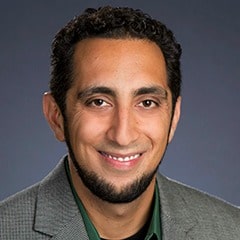
Sepehr Vakil is an assistant professor of Learning Sciences in the School of Education and Social Policy at Northwestern University. Previously he was Assistant Professor of STEM Education and the Associate Director of Equity & Inclusion in the Center for STEM Education at the University of Texas at Austin. His research draws on critical ethnographic, historical, as well as participatory design-based methodologies to examine the politics of learning and the politics of knowledge production in STEM disciplines, with a focus on engineering and computer science. His work has appeared in the Harvard Educational Review, Journal of the Learning Sciences, Cognition and Instruction, Equity & Excellence in Education, and Teachers College Record. Dr. Vakil received his M.S. in Electrical Engineering from UCLA, and a Ph.D. in Education with a focus on mathematics, science, and technology from UC Berkeley.
“I don’t know how I can do engineering and feel like I’m impacting my community”: A Comparative Case Study of the Cultural Production of Political Identity for Undergraduate Students of Color in Engineering and Computer Science.
In STEM education, particularly in engineering and computer science (CS), research tends to overlook political dimensions of learning and identity. This project is based on the premise that deepening our understanding of political identity, which I define as the extent to which a keen awareness of injustice and a commitment to working towards social, cultural, or political change is central to one’s sense of self, will have important implications for connecting STEM learning to fundamental human needs and societal dilemmas. Specifically, I am interested in the cultural production of political identity, or the ways in which learning environments cultivate, suppress, or otherwise mediate students’ political selves in the learning process. Using a comparative case study methodology, this study examines the cultural production of political identities for first-year undergraduate engineering and CS students at the University of California, Berkeley, and the University of Tehran, in Iran. These research sites were selected based on key similarities as well as key differences between the two universities. UC Berkeley and the University of Tehran are both internationally recognized for their science and engineering programs, as well as for their historical legacies of student activism and political engagement. Yet, while engineering/CS students at UC Berkeley (and in the US more generally) are not known to be particularly engaged in sociopolitical issues, engineering students at the University of Tehran have historically been at the forefront of freedom struggles in Iran. Across both contexts, I will take up the following research questions: (1) What do first year undergraduate computer science and engineering students learn about the sociopolitical values and purposes of their major? (2) How does this learning cultivate, suppress, or otherwise mediate students’ political identities? Findings from this study will broaden how we understand identity processes in STEM contexts, and will also have implications for efforts to rethink the ethical, moral, and political dimensions of engineering and computer science education.
Di Xu, University of California, Irvine
Di Xu is an assistant professor of educational policy and social context at the University of California, Irvine. She is also a research fellow with the Community College Research Center at Teachers College, Columbia University and a visiting fellow at the American Enterprise Institute. Her research uses experimental and quasi-experimental designs to examine the impacts of postsecondary educational programs and policies aimed at improving college students’ educational outcomes, with a particular focus on students from low-income and underrepresented groups. Her work has been published in the American Educational Research Journal, Community College Review, Educational Evaluation and Policy Analysis, Educational Researcher, Economics of Education Review, Journal of Higher Education, Journal of Human Resources, Journal of Research on Educational Effectiveness, and the invitation-only journal New Directions for Community Colleges, among others; the findings form her studies have also been widely cited in various news outlets including the New York Times, The Atlantic, the Chronicle of Higher Education, Inside Higher Ed, Diverse Issues in Higher Education, and other outlets. Di has a Ph.D. in economics and education from Teachers College, Columbia University.

How Two-and Four-Year College Instructors with Different Contract Types Affect Students’ Academic and Labor Market Outcomes
Based on a novel dataset that links college administrative information with earnings records from a state college system for almost 80,000 students enrolled at either two-year or four-year colleges, this project will relate the proportion of course credits taken with different types of instructors — non-tenure track adjuncts hired through temporary appointments, non-tenure track instructors hired with long-term contract, and tenure-track/tenured faculty — during a student’s initial semester in college to her academic and labor market outcomes. To minimize bias from student sorting by instructors, I will use a course-set fixed effect model that compares between students who take exactly the same set of courses during their first semester of college enrollment; I will further augment the model by combining it with an instrumental variable approach which exploits term-by-term fluctuations in faculty composition in each department, therefore controlling for both between- and within- course sorting. Finally, based on the rich information on instructors’ demographic characteristics and multi-year employment records in this state, I will explore the extent to which instructor effectiveness can be explained by observable instructor demographic characteristics and employment features. This study will provide the first quasi-experimental evidence regarding the impact of different types of college instructors on student labor market outcomes, as well as a comprehensive exploration of possible mechanisms that may explain such impacts.
